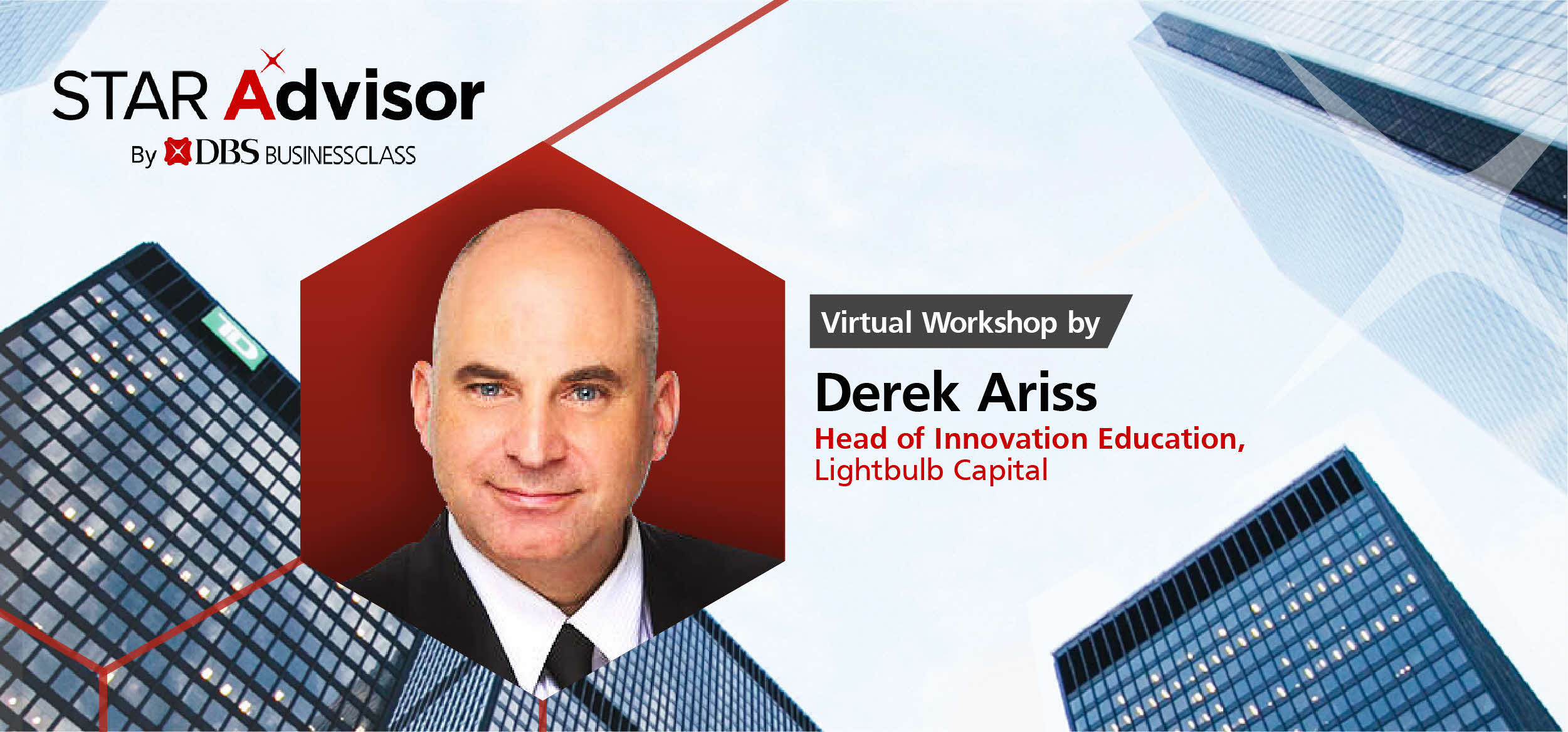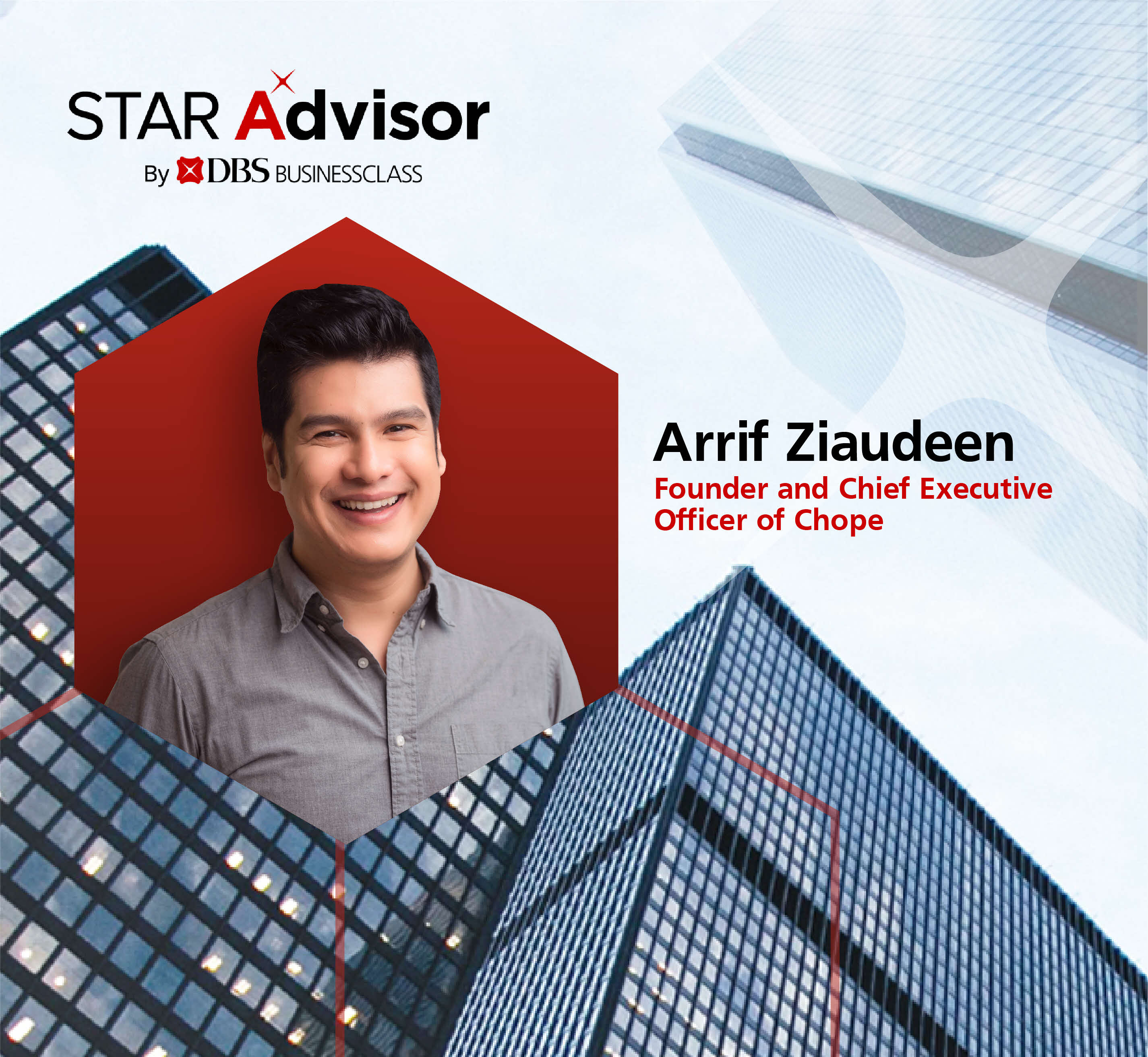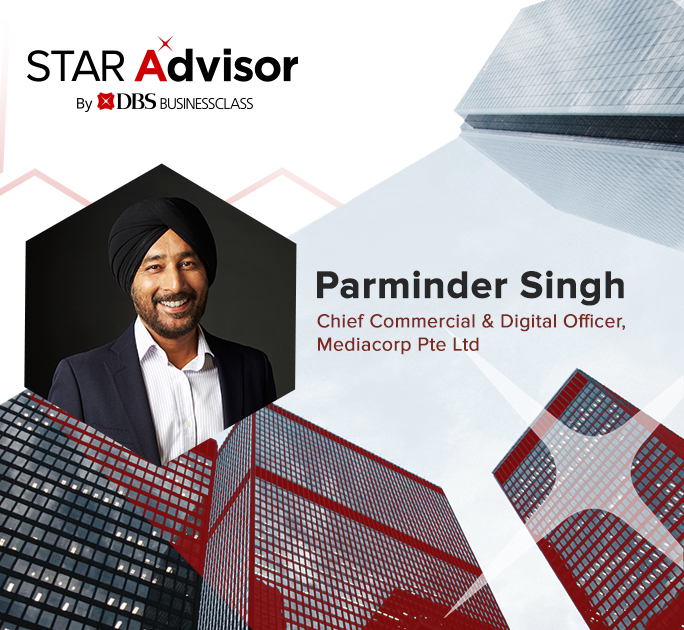Fostering a Creative Mindset for SMEs - 5-Star Advice from Derek Ariss
It is essential for SMEs, now more than ever, to foster a creative mindset to stay ahead of the competition. Star Advisor Derek Ariss, Head of Innovation Education at Lightbulb Capital shares on ways of bringing creativity into a business.

Derek Ariss has made a career of leveraging innovation to help people and organisations deliver superior performance. As Head of Innovation Education at consultancy Lightbulb Capital (Singapore) Pte Ltd, he is spreading the gospel so that businesses foster a creative mindset and thrive in today’s fast-changing landscape.
Derek shares with us his thoughts on the challenges that SMEs face in honing their innovation capabilities. Here are some tips on how they can get their creative juices flowing.
Can you describe your role at Lightbulb Capital?
I work at Lightbulb Capital (Singapore) Pte Ltd. We are a boutique that works mainly with financial services organisations to capture new value through innovation and innovation processes.
I am responsible for building the education practice, focusing on creativity, design thinking, technology, culture, and developing a mindset conducive to innovation in business. I design, develop, and deliver of several programmes to help individuals and organisations add new value through being innovative.
How important is it for SME’s to foster a creative mindset in today’s competitive environment?
It is essential for SMEs, now more than ever, to foster a creative mindset. Technology is driving the rate of change at an ever-increasing speed. This rate is so quick, that as businesses and as individuals, we need skills that will allow us to thrive in these ever-changing times. One of these skill sets lies in the area of creativity.
If we practice creativity that adds value to the business, then we stay relevant in our marketplace. SMEs need to keep creating, modifying, and learning to stay ahead of the competition. It’s not easy to keep looking at new ideas and bringing them into the business, but it is crucial. For example, in our business, we need to look at how technology impacts education, what are the new formats of delivery, and how can we keep improving our programme delivery. We want our customers to say, “ Wow, that programme was current and applicable.”
What are the challenges for businesses in doing so?
We all know that creativity is important for a thriving business, but we don’t spend enough time or effort focusing on this area. We are too busy running the operations of the company.
An Adobe systems poll, surveying approximately 5,000 people across three continents, showed that 80% of all people surveyed saw the need for unlocking peoples’ creative potential as a key for economic growth. Yet, less than a quarter of the people surveyed found that they were living up to their creative potential.
These findings match what I have experienced while running innovation and creativity workshops. I ask the participants a simple set of ‘yes’ or ‘no’ questions focused on whether they feel creativity is important, and if their organisation is doing enough to be creative. There is a general belief that creativity is essential and that the organisation needs to do more to foster creativity.
Fostering creativity can be simple if you are committed to it. Like all things of value, there is a price. It takes dedication, time, and effort to practice creativity and learn from it. Putting some time aside now will pay dividends in the future
How can SME owners embark on this journey of creativity?
One of the easiest ways of bringing creativity into a business is to go out of the organisation and try something new. The novelty of the activity will give you exposure to different points of view and help you feel comfortable with creative solutions.
So how can you do that? If you live in Singapore, I often encourage clients to go somewhere new, such as the Red Dot Design Museum. At the museum you will get to see award-winning innovations and designs across many industry sectors from around the world in one small building. So you always have something to discover. Everyone I know who has gone there has said it is worth the visit.
But you don’t need to go to a museum; just go and do something out of your normal pattern. Try a new restaurant, surf the net with your kids, go for a walk instead of drive; it doesn’t matter as long as it gets you to look at things with an open mind and from a different perspective.
And, here is the critical part: After the experience, write down what was novel, interesting, or unexpected, and apply it to a problem you are trying to solve. If you do this in business, the chances are high that you will find an exciting and valuable solution to the next problem you are working on. It’s a simple and powerful technique that I use often.
What tools and resources can SME’s leverage to help them develop creativity in their organisation?
One of my favourite books on the subject called Look At More by Andrew Stefanovich embraces the notion of going out and experiencing new things. The book is about innovation but has several creative concepts and case studies. It reminds us that, as leaders, we need to lead by example and help our teams create. And to create great solutions, we need to get out of our offices and look at more things.
Other sources of information that I use are news aggregators like Apple News, Google News, and Flipboard. I also like Magzter, where you have access to over 5,000 magazines. These are great creative sources of inspiration. If you are really keen on specific creativity tools, drop me an email and I can tailor some material to your requirements.
You will be speaking about the concept of GRIT at your workshop, can you briefly explain what it is?
Concerning skills needed in the future, GRIT is one of my favourite topics. It is an essential characteristic for all of us to develop in business. GRIT is the way people combine passion and perseverance to achieve long term goals and achievements. This workshop looks at the components that make up GRIT and how we can apply this. in our careers to move towards creating excellence personally and professionally.
People with high levels of GRIT seem to be more resilient, more focused, and more content in what they do. It promises to be an informative, interactive, and fun learning session.
I look forward to seeing people at the workshop.
Register here for the workshop to learn more about Grit.





That's great to hear. Anything you'd like to add?
We're sorry to hear that. How can we do better?